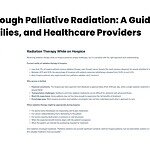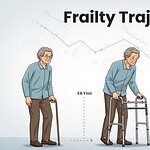Category: Advocacy
Advocacy issues in healthcare especially in the field of hospice
Advocacy issues in healthcare especially in the field of hospice

Family caregivers face unique challenges when aging parents refuse help. Learn three proven strategies—including PACE programs and Health and Life Navigation Specialists—to break through resistance while honoring dignity. Plus, discover why ensuring your parent's advance directives are current and you have medical access is critical.

When nursing home residents with dementia face hospitalization, families often discover critical gaps in advance care planning. Studies show most dementia patients lack DNR orders, and hospice referrals remain rare despite distressing hospital experiences. Learn how proactive planning—including palliative care, hospice eligibility, and proper DNR documentation—can protect your loved one's comfort and dignity.

Everyone 18 and older needs advance directives, but how do you choose between free forms, attorneys, or end-of-life doulas? We break down the costs, pros, and cons of each to help you ensure your medical wishes are honored.

Hospice fraud not only harms terminally ill patients but also devastates their caregivers and families. This article explores the impacts and offers tips on choosing a reliable hospice provider.

As a nurse or doctor, you have the power to transform patient care through timely end-of-life conversations. This guide provides practical strategies to help you confidently discuss prognosis, encourage advance care planning, and introduce hospice care when appropriate—across hospitals, nursing facilities, and more.

Hospice providers have proven strategies to reduce symptom burden and boost satisfaction scores. Discover how combining nurse practitioner telehealth visits, educational videos, and end-of-life doula support transforms caregiver confidence and patient comfort in home-based care.

End-of-life doulas offer untapped potential as compassionate partners in healthcare. These trained professionals complement hospice care by providing extended emotional and spiritual support, serving as life transition coaches long before hospice is needed—enhancing end-of-life experiences for families.

After 15 years and 300 final breaths, nurse Laura M. discovered seven profound truths about what truly matters in life. Her patients didn't fear dying—they feared not having really lived. Learn these life-changing lessons and discover how life transition coaches can help you live with fewer regrets and ensure your wishes are honored.

End-of-life doulas provide non-medical support that transforms dying experiences through education, emotional companionship, and advocacy. Learn how these trained professionals help patients and families navigate terminal illness with dignity, how healthcare providers can partner with doulas, and what to look for when selecting one.

Quality end-of-life care reduces complicated grief among families. Research shows that families who feel supported and witness dignified care experience fewer prolonged grief reactions. Learn how life transition coaches and end-of-life doulas provide essential emotional, spiritual, and practical support that bridges gaps in healthcare, helping families navigate loss with greater peace and understanding.

Palliative radiation therapy offers targeted symptom relief for patients with advanced cancer, reducing pain, bleeding, and other distressing symptoms. This comprehensive guide empowers patients and families to understand treatment options, manage side effects, and make informed decisions that prioritize comfort and quality of life.

The fear of dying alone is growing as families live farther apart and more people age without close support networks. End-of-life doulas and life transition coaches offer a solution by providing continuous companionship, emotional support, and guidance throughout serious illness and the dying process.

Despite Medicare's six-month hospice benefit, most patients receive care for only 18-21 days, often when already transitioning to death. Research shows early hospice enrollment can extend life by 29-81 days while dramatically improving quality of life. Life transition coaches help families navigate earlier hospice and palliative care adoption for better outcomes.

A hospice nurse reflects on a powerful moment with a dying patient who painted "Three Wishes"—dandelions symbolizing childhood innocence and life's fleeting nature. This experience teaches us to examine how we're living, who we love, and what matters most. Learn why advance directives and living with fewer regrets matter for everyone.

Looking to determine appropriate pricing for end-of-life doula services? This detailed guide compares sliding-scale fees with full-price and donation-based options. Learn effective strategies for establishing fair rates, applying a sliding-scale system, and ensuring compassionate care remains affordable for all families.

A palliative care doctor shares people's three most common wishes at the end of life: mending relationships, expressing gratitude, and saying "I love you." Planning for a good death with the help of a life transition coach can help you accomplish more meaningful goals and ensure your final days reflect your values.

The Frailty Trajectory Model offers a new way to understand how health changes over time, especially for older adults. This approach helps healthcare practitioners and life transition coaches guide patients through illness with compassion and clarity, making it easier to plan care that matches personal values and goals.

Recent University of Michigan research found that benzodiazepines and antipsychotics commonly prescribed in hospice care may significantly increase mortality risk for people with dementia. This article explores these findings and provides essential advocacy guidance for families, caregivers, and hospice professionals.

New research reveals that 37% of advanced cancer patients feel their treatment doesn't match their personal care goals—nearly twice the rate of other serious illnesses. This disconnect highlights our healthcare system's focus on fixing problems after they occur, without considering comfort or quality of life. Discover why planning your values and care preferences before illness strikes can prevent this misalignment and ensure you receive care that truly honors what matters most to you.

Facing difficult decisions about breathing support at the end of life? Understand the differences between BIPAP, intubation, and ventilators. Learn how complete advance directives guide families toward comfort-focused care and how end-of-life doulas provide affordable, compassionate support during these challenging choices.

Learn how SupportNow.org can transform the way end-of-life doulas, caregivers, and families coordinate practical support during life's most challenging moments. This free platform brings together financial help, meal coordination, volunteer assistance, and family updates in one simple place.

End-of-life doulas are transforming hospice care quality through specialized training and collaborative partnerships. Learn how these compassionate professionals enhance patient experiences, support families, and improve hospice satisfaction scores when properly integrated into care teams.

Dialysis is a choice, not a requirement for end-stage kidney disease. While this life support treatment can extend life, it significantly impacts quality of life through fatigue, time constraints, and physical challenges. You have the right to choose comfort care and hospice instead. Learn why discussing dialysis preferences should be part of every living will and how end-of-life doulas can help navigate these important decisions.

Nursing students' fear of death significantly impacts their readiness for hospice care, affecting the quality of end-of-life services. With severe staffing shortages and insufficient mentorship, new nurses enter hospice unprepared. End-of-life doula education through programs like death doula schools provides crucial solutions.